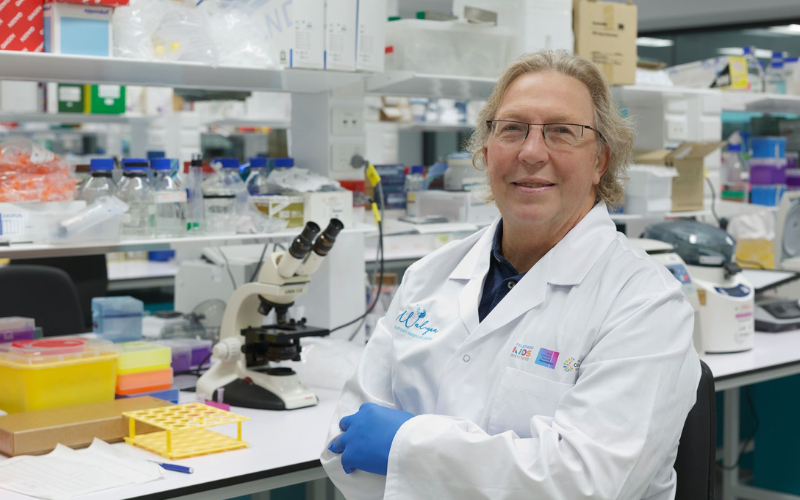
A project to be undertaken by a team of researchers at the Wal-yan Respiratory Research Centre, led by chief investigator Professor Stephen Stick, aims to develop interventions that could provide protection in the event of a new pandemic, and against common viruses already infecting children and adolescents in Western Australia.
To be administered by The University of Western Australia, the two-year project is made possible thanks to nearly $600,000 in funding provided by the State Government’s WA Child Research Fund (WACRF).
Titled Close encounters of the nasal mucosa: identifying mechanisms that determine host responses to infection in children following "first contact" with respiratory viral pathogens, the project will identify the factors that determine the outcome of viral exposure and infection.
Professor Stick said the development of new therapies for respiratory viruses, including new viruses with pandemic potential, is a World Health Organization priority.
“Almost nothing is known about the initial host response to viruses in the nose, the point of ‘first contact’, that orchestrates the cascade of events which may result in severe infection and disease – as seen during the COVID-19 pandemic,” Professor Stick said.
“The aim of this project is to understand the molecular responses in the cells lining the nose to viruses. To do this, we will use the only known “natural challenge model”, established as part of the recently completed ConCorD-19 clinical trial.
The “natural challenge model” comprises children and adolescents who are naturally infected with COVID-19 during the ConCorD-19 trial – which allows us to assess real-world responses to exposure to a virus.
Nasal lining tissue (cells from the nose) and fluid samples, and blood, will be used to understand differences in genes and immune responses between those who develop symptoms and those who do not.
The factors determining susceptibility (likelihood of infection) and resilience (likelihood of recovering from infection) are currently unknown.
The findings, in conjunction with the thorough clinical information collected during the ConCorD-19 trial, will be used to reveal the specific patterns that can predict whether an infection will take hold, and put us in a better position to develop interventions that could provide protection against respiratory viruses.
The Wal-yan Respiratory Research Centre is a powerhouse partnership between The Kids Research Institute Australia, Perth Children’s Hospital Foundation and Perth Children’s Hospital.
The WA Child Research Fund – formerly known as the Telethon-Perth Children’s Hospital Research Fund – was established by the Department of Health and the Channel 7 Telethon Trust in 2012 to provide financial support to research projects that focus on the health of children and adolescents in WA.
Congratulations to Professor Stephen Stick and the project team for being awarded this grant, which will benefit the health of kids in WA and beyond.
